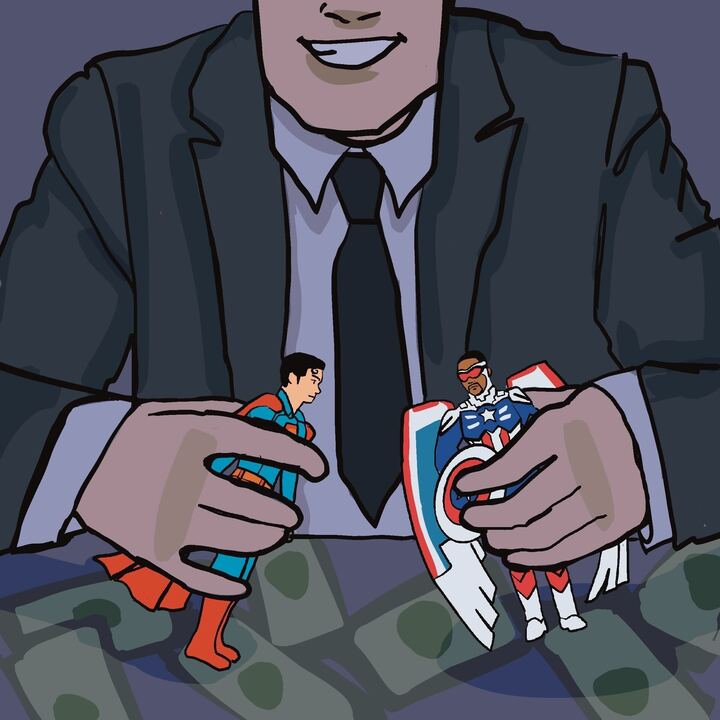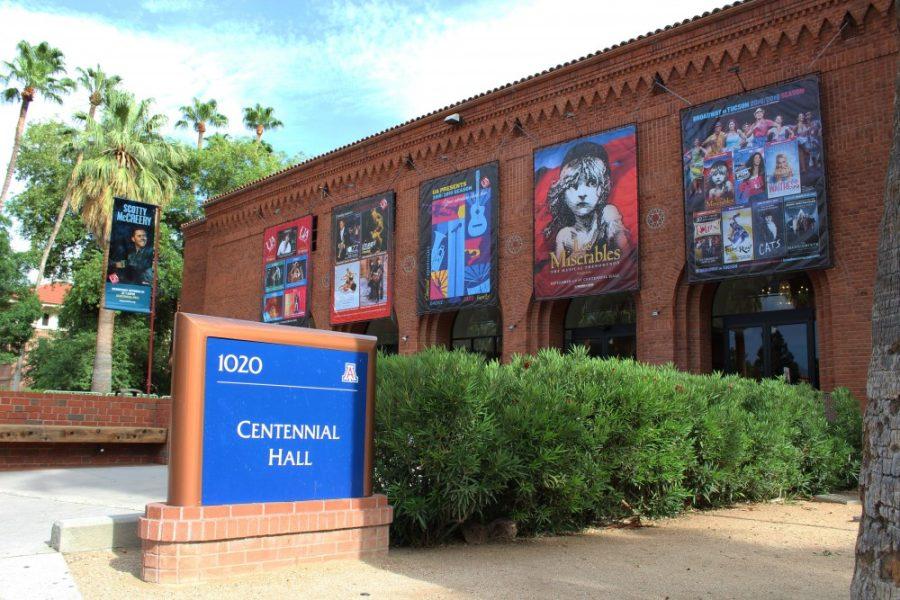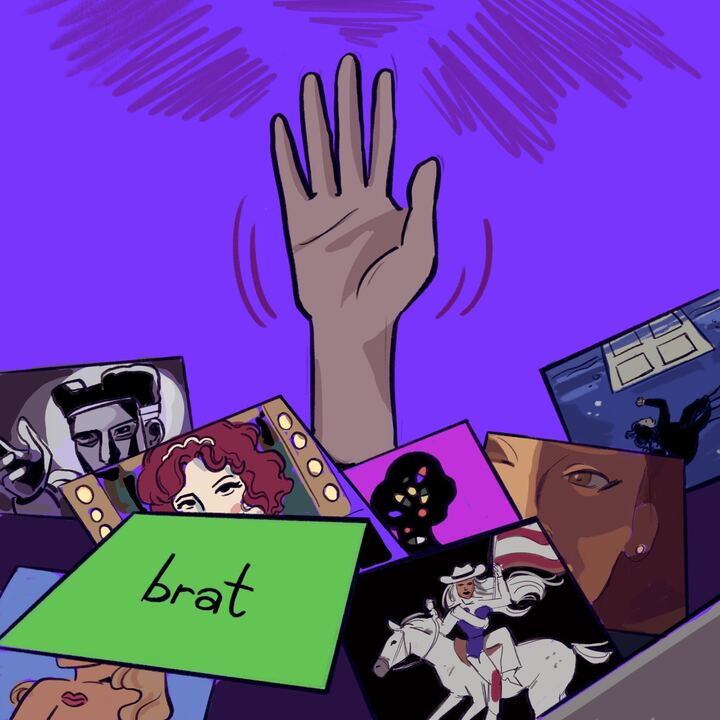The Marvel Cinematic Universe is not where it used to be.
Not that long ago, Marvel films were almost guaranteed to make a billion dollars. Formerly that type of box office was historic, but Marvel put out “Black Panther,” “Infinity War,” “Captain Marvel,” “Avengers: Endgame” and “Spider-Man: Far From Home” in a two year period like it was nothing. But by the time “Captain Marvel’s” sequel “The Marvels” came out in 2023, it crashed and burned at the box office, making back $206 million off an over $300 million budget.
Blood was in the water before “The Marvels,” as “Ant-Man and the Wasp: Quantumania” and “Eternals” also performed poorly at the box office.
It would be foolish to proclaim that superhero movies are dead, as films such as “Deadpool and Wolverine” and “Black Panther: Wakanda Forever” are still bringing in massive box-office numbers, but it is hard not to see the writing on the wall for the genre’s dominance.
Outlets such as the New York Times have blamed the growing disinterest on “superhero fatigue,” caused by a general drop in the quality of the films and the overwhelming amount of content needed to understand a single film within the MCU.
The MCU was built on the promise that all of these distant, unrelated films would eventually lead up into one epic final film that would bring every character together. That promise was realized twice, the first time in the “Avengers” in 2012 and again in 2019 with “Avengers: Endgame.” By the time the endgame materialized, audiences had sat through 21 films of build up, a total runtime of 47 hours. All of that goodwill accumulated over the 11 years since “Iron Man” was released and was cashed in for one big payoff.
Marvel then expected for audiences to immediately start the process over again in the nine year build up to lead up to “Avengers: Secret Wars.” They treated audience attention as something they innately had instead of something they had to earn.
Unfortunately, it was very obvious that nothing that happened in any film before then mattered whatsoever. The audience who just saw that half of all life in the universe being vaporized could be reverted and with no lasting consequences could now tell that they were not obligated to see “Shang-Chi and the Legend of the Ten Rings.”
At the beginning of the MCU, for the cost of a single movie ticket, you could go sit down and watch a story where those with power actually fought for the world to be a better place. Now, Marvel superheroes are fighting to make sure that everything stays exactly the same. Even in the realm of outlandish fantasy, those with the power are dead set on keeping everything in a suffocating status quo.
There is not a reason on this big blue sphere called Earth to care about anything that happens in a Marvel movie. The MCU has wounded itself with its own unimportance. Nothing will happen for two hours, then the post-credit scene will advertise that the next film will actually be important, then in the next film nothing will happen, rinse and repeat.
Comic books are corporate. Film is corporate. That has never prevented either medium from telling great stories. Currently, the Disney controlled Marvel Studios could not be less interested in story. Disney only seems interested in making superhero films so it can justify what logos it puts on lunch boxes. Audiences just do not have the patience for watching corporate advertisements anymore.
Last Comic-Con it was announced that Robert Downey Jr. would return to the MCU as Dr. Doom in “Avengers: Doomsday.” Dr. Doom is meant to be the next Thanos, after Marvel’s last next Thanos, Kang, was sacked because Jonathan Majors got into legal trouble. The announcement was so transparently desperate you can feel the corporate algorithm generating the idea. The MCU is losing its audience and is pulling out its hail mary to get it back.
Seems like a prime opportunity for their arch-enemy DC to step in.
The DC Extended Universe (DCEU) succumbed to a similar lack of direction. Following the release of “Justice League” in 2017, the film equivalent of Frankenstein’s monster, the DCEU never regained any sense of purpose. DC’s slate of films had no cohesion or even a semblance of quality control. The constant reports of Warner Bros. caustic internal politics were the most interesting story to come out of the enterprise.
The DCEU was euthanized when James Gunn took over as head of the new DC Studios which will be the start of a new DC cinematic universe: the “DCU.” Gunn has publicly touted his DCU as a quality first enterprise, saying he will only approve scripts that he is happy with.
“I think it doesn’t have anything to do with superheroes. It has to do with the kind of stories that get to be told and if you lose your eye on the ball, which is character,” Gunn told the Rolling Stones, “And if it becomes just a bunch of nonsense on screen, it gets really boring. But I get fatigued by most spectacle films, by the grind of not having an emotionally grounded story. It doesn’t have anything to do with whether they’re superhero movies or not.”
Whether or not Gunn’s “Superman” manages to resuscitate DC is to be seen. Things are looking good — financially at least — for the Man of Steel, as the trailer has the most views of any in Warner Bros. history, raking in a whopping 250 million views in a single day.
But what type of film comes bundled with a business plan? The DCU has 17 projects announced as “Chapter 1” of the DCU, with even more unannounced projects in the works. Gunn plans for the DCU to be all encompassing across film, television and video games. Almost two dozen multi-million dollar projects before the universe has even proven itself as a worthwhile venture. Gunn’s approach to a cinematic universe is shamelessly corporate, like he is building a toyline.
So far the DCU has released a television series “Creature Commandos” written by Gunn, which across its seven episode season has boldly promised more of the same.
There are a few superhero projects that show that there is potential for storytelling beyond being shambling corporate products. Art was never meant to be under the wing of capitalism.
Matt Reeves’ self contained Batman continuity has managed to defy the issues plaguing the MCU and gestating DCU. Starting with “The Batman” in 2022, which is probably the best superhero film in the last decade, masterfully creating an engaging neo-noir story rooted in genuine concern for class inequality.
Reeves has actively defied efforts to force Robert Pattison’s Batman into a cinematic universe.
Reeves followed up “The Batman” with the release of HBO series “The Penguin,” which felt less like a typical cinematic universe spin-off and was a gripping story in its own right.
Reeves sees these characters as more than just mascots and treats the viewers as people whose time, money and intelligence deserves to be respected.
Amazon’s “Invincible” has just released its third season on Feb. 6. Invincible has had its share of video game tie-ins, action figures and relentless marketing but all of that is secondary to the storytelling. The story broaches the depths of space, spans multiverse and features an assortment of clones, space aliens and an immortal Abraham Lincoln. Mark Grayson lives in a larger than life world, but his struggle to be a hero is an unmistakably human journey.
I will still show up to “Superman” and “The Fantastic Four: First Steps,” but DC and Marvel need more than just die-hards if they want to remain in the cultural conversation. If they want to retain an audience they need to stop treating their audiences like mindless consumers, but rather discerning viewers who crave meaningful stories that respect their intelligence.
Follow the Daily Wildcat on Instagram and Twitter/X









